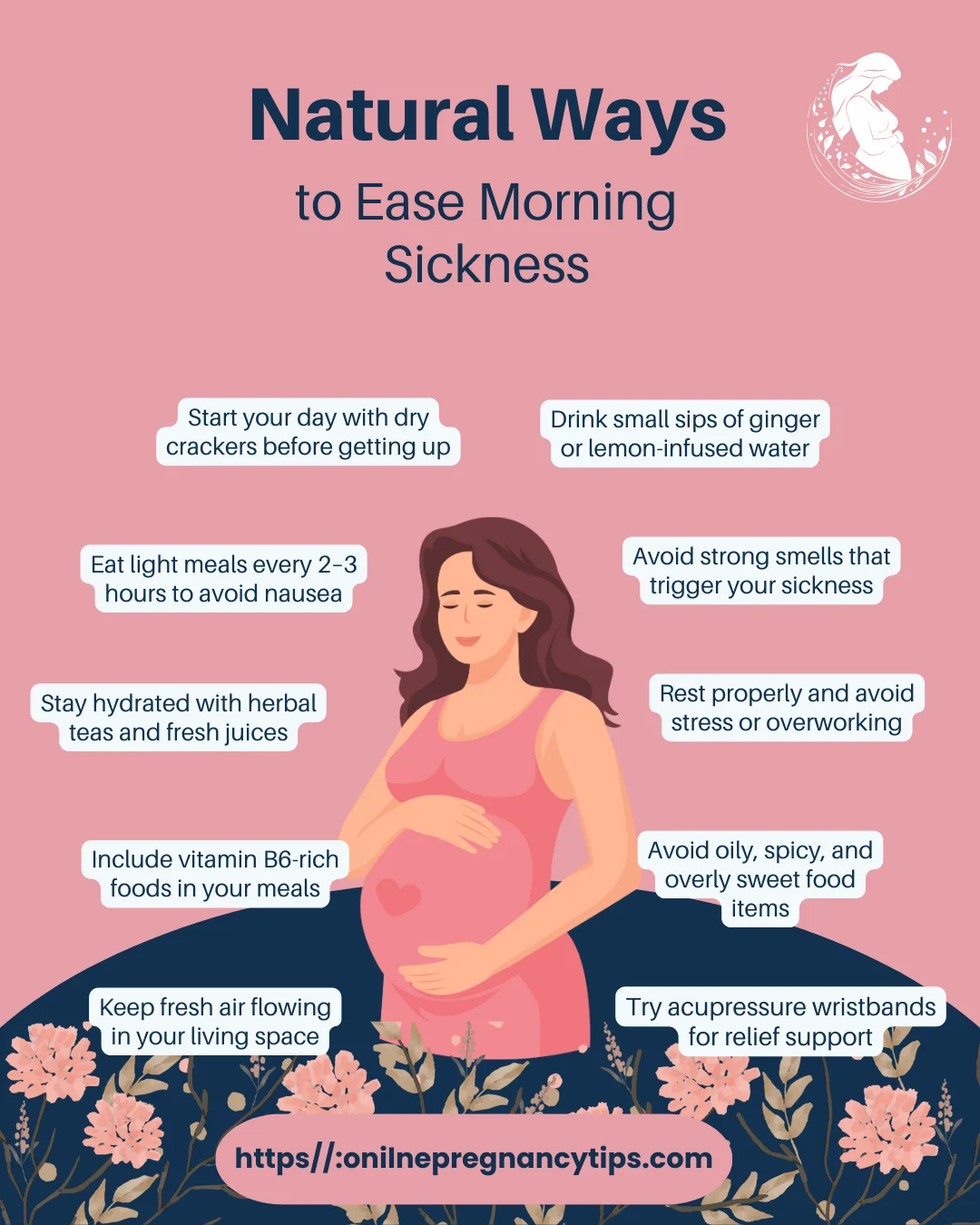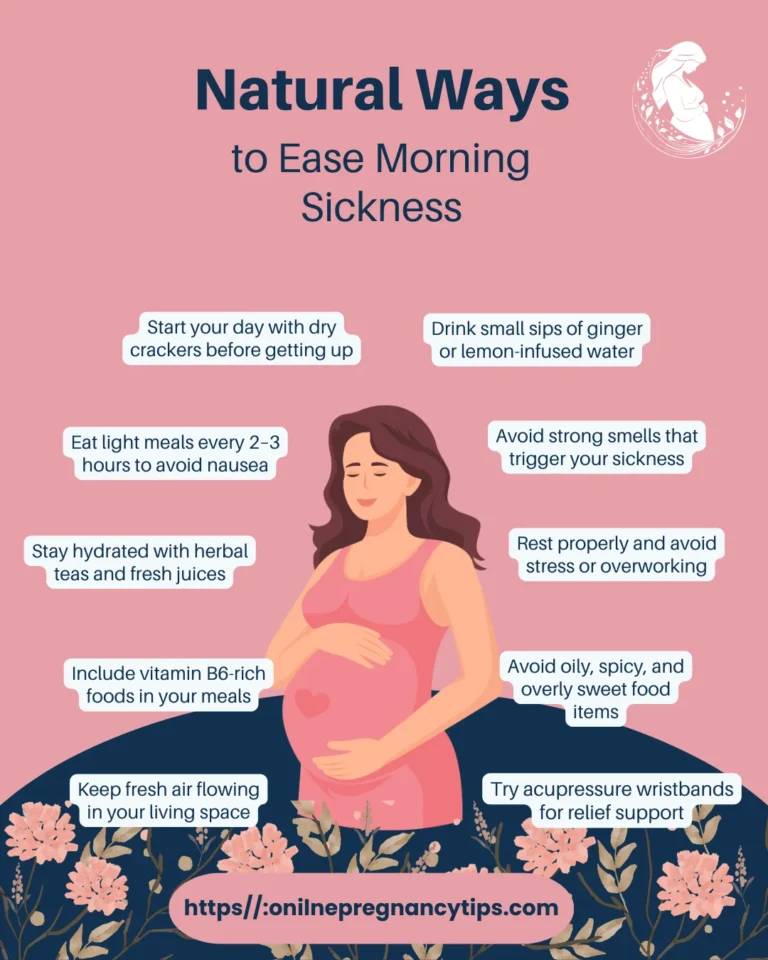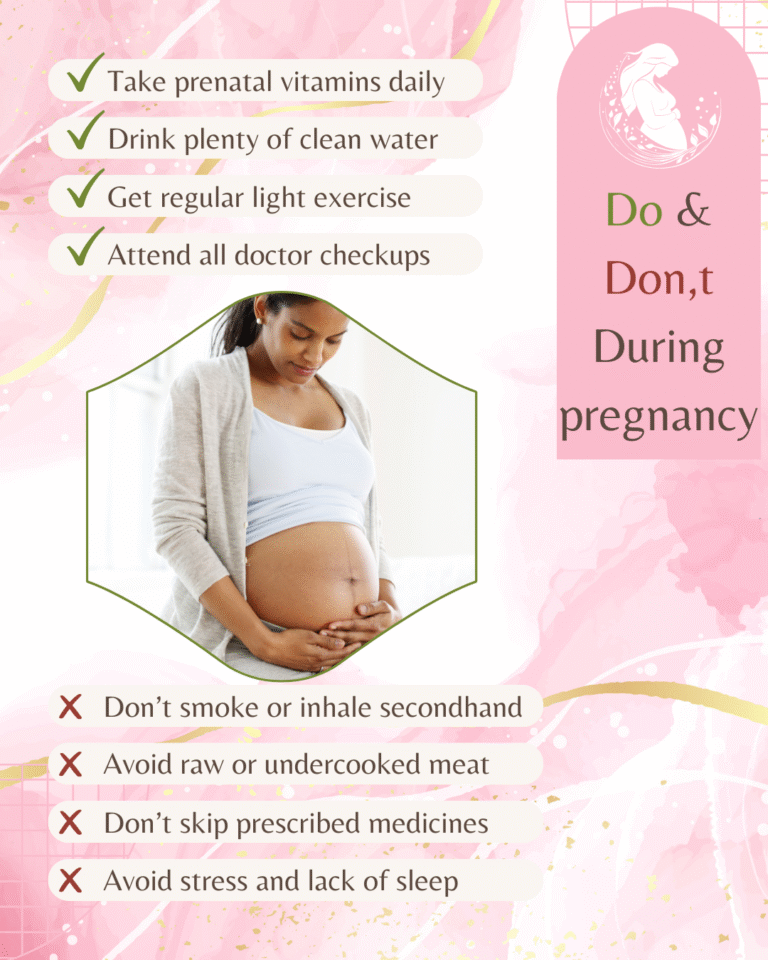

Natural Ways to Ease Morning Sickness: A Gentle Guide for Expecting Mothers

Natural Ways to Ease Morning Sickness: A Gentle Guide for Expecting Mothers
Morning sickness — a common and often challenging part of early pregnancy — affects up to 80% of pregnant women. Characterized by nausea and sometimes vomiting, it can range from mild discomfort to significant daily disruption.
But here’s the good news: you don’t have to suffer in silence. Nature offers many gentle, safe, and effective remedies to help you feel better without relying on medication. In this comprehensive guide, you’ll discover natural ways to ease morning sickness based on science, experience, and expert insight.
1. What is Morning Sickness?
Morning sickness refers to nausea and vomiting during pregnancy, especially in the first trimester. Despite its name, it can strike any time of day or night.
While unpleasant, it is usually not harmful to the baby and often indicates that pregnancy hormones are functioning properly.
2. When Does It Start and End?
Starts: Between week 5 to 6 of pregnancy
Peaks: Around week 9
Ends: Usually by week 14 to 16
In some women, it may last longer or persist throughout pregnancy (a severe form known as hyperemesis gravidarum)
3. What Causes Morning Sickness?
Several factors contribute to morning sickness, including:
Rising hormone levels (especially hCG and estrogen)
Sensitivity to smells
Stress or fatigue
Slower digestion
Low blood sugar levels
Every woman experiences it differently, but the triggers are often similar.
4. Natural Remedies for Morning Sickness
a. Ginger: Nature’s Nausea Fighter
Ginger is one of the most well-researched natural remedies for morning sickness.
How to Use:
Ginger tea
Fresh ginger in warm water with lemon
Ginger candies or lozenges
Ginger capsules (after doctor consultation)
b. Peppermint: A Cooling, Calming Herb
Peppermint helps relax stomach muscles and relieve nausea.
Try:
Peppermint tea
Sniffing peppermint essential oil
Peppermint candies
c. Lemon: Citrusy Relief
The fresh scent and taste of lemon can instantly reduce queasiness.
Use it as:
Lemon water
Lemon essential oil in a diffuser
Lemon candy or drops
Fresh lemon juice in ginger tea
d. Acupressure: Gentle Pressure, Big Relief
Wrist acupressure, especially on the P6 (Nei Guan) point, can reduce nausea.
Method:
Use acupressure wristbands
Apply pressure with your thumb for 3 minutes on each wrist
e. Eat Small, Frequent Meals
An empty stomach can worsen nausea. Large meals can also trigger it.
Tips:
Eat every 2-3 hours
Choose protein-rich and bland foods
Avoid spicy, greasy, or acidic dishes
f. Stay Hydrated — the Right Way
Dehydration can intensify nausea.
Hydration Tips:
Sip small amounts throughout the day
Try ice chips or fruit-infused water
Avoid drinking large amounts at once
g. Vitamin B6 (Pyridoxine)
Studies show Vitamin B6 supplements can reduce nausea significantly.
Dose:
10–25 mg, 2–3 times a day (only with doctor’s guidance)
h. Avoid Triggers
Certain smells, lights, or foods can bring on nausea.
What to Do:
Note down your personal triggers
Avoid kitchens during cooking
Use natural air fresheners (like lemon or lavender)
i. Fresh Air and Rest
Rest and good ventilation are simple but powerful tools.
Try:
Taking short naps
Keeping windows open
Going for a short walk outdoors
j. Herbal Teas
Soothing teas can calm both the stomach and the mind.
Best Teas for Pregnancy Nausea:
Ginger
Peppermint
Lemon balm
Chamomile (in moderation)
5. Holistic Practices to Support Nausea Relief
a. Prenatal Yoga & Breathing Exercises
Calms the nervous system and eases tension that may worsen nausea.
b. Aromatherapy
Scents like ginger, citrus, and lavender can bring instant relief.
c. Reflexology
Targeting specific points on the feet can reduce nausea.
d. Meditation & Mindfulness
Promotes emotional balance and may reduce perception of discomfort.
6. Foods to Eat and Avoid
Best Foods to Eat:
Dry crackers or toast
Plain rice or potatoes
Bananas
Apple sauce
Oatmeal
Broth-based soups
Yogurt
Foods to Avoid:
Fried or fatty foods
Strong-smelling spices
Acidic fruits like oranges (if they trigger symptoms)
Coffee
Carbonated or sugary drinks
7. Safe Habits & Lifestyle Adjustments
Eat in bed: Keep crackers near your bedside and eat before getting up.
Avoid brushing teeth immediately after eating: Wait 30 minutes to reduce the gag reflex.
Wear loose-fitting clothes: Pressure on the abdomen can increase nausea.
Don’t lie down after eating: Wait at least an hour.
8. When to See a Doctor
While mild to moderate nausea is normal, seek medical advice if:
You can’t keep fluids down
You vomit more than 3 times a day
You lose weight
You feel dizzy, faint, or dehydrated
Your urine is dark and infrequent
These could be signs of hyperemesis gravidarum, a condition requiring medical treatment.
9. FAQs About Morning Sickness
Q1. Is morning sickness a sign of a healthy pregnancy?
Yes, it often indicates strong hormonal activity, though its absence doesn’t mean anything is wrong.
Q2. Can morning sickness harm the baby?
Mild to moderate nausea is not harmful. Severe cases need monitoring.
Q3. Can I take anti-nausea medication?
Only with your doctor’s prescription. Some are considered safe, but natural remedies are often enough.
Q4. How long does morning sickness last?
Most women feel better by the second trimester, though some experience symptoms longer.
Morning sickness can be exhausting, but it’s a temporary phase in a beautiful journey. The key is to be gentle with yourself, rest often, and use natural methods to manage symptoms. With the right support and strategies, you’ll feel better — and stronger — day by day.
Remember, always check with your healthcare provider before starting any new supplement or treatment.
You are not alone — millions of mothers have faced this and emerged stronger. You’ve got this, mama.





